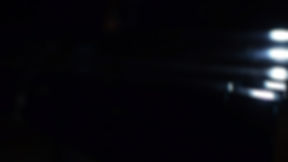Swing City Mumbai
- Prachiti
- Nov 19, 2019
- 3 min read
Updated: Aug 7, 2020
Akanksha Singh:
It was the roaring twenties and Mumbai was Bombay. Art Deco buildings went up one by one until Bombay would soon have the world’s second largest collection of these streamlined but ornate structures.
Towards the end of that decade, Bombay got her first sip of jazz and she was hooked. The combination was odd-seeming at first: saris mixed with tuxedos as the port-city went from being fishing village all the way to being a thriving metropolis.
The jazz scene partially shifted to Calcutta in the 60s, but not before the electric decades in-between that made the city swing and swoon, with help from Teddy Weatherford, Rudy Jackson, Chic Chocolate, Micky Correa and a cocktail of international and home-grown legends. But jazz never left Bombay; it stayed – peeking up from its cloche hat every so often; resurging as it did amongst the city’s young musicians in its adaptive, genre-bending avatar a couple of years ago.
Recently-opened, The BlueBop Cafe in Khar West is one of those places looking to welcome the shy and the new. Owner Amar Sukhi insists that his restaurant, which hosts jazz nights every Friday and Saturday, is a place for all. “In India, jazz is seen as this elite, cerebral thing, [and] if you’re not an intellectual, you won’t get it. But jazz grew up in brothels and gambling houses—and spread across the West like that. New Orleans, Chicago, the railroads and the riverboats. It grew up in community.”

Dee Wood, one of the few musicians who has watched the tides of the jazz scene turn many times over in his thirty-five years in the city. Along with his business partner, Rajesh Punjabi, Wood runs The Bombay Jazz Club, musical venture and curative body for jazz rolled into one. Wood and Punjabi’s hope is to build the jazz scene entirely organically, currently anchored in a tiny, hole-in-the-wall venue called The Bandra Base. Today, the biggest difference is the presence of music schools. “Now you can study and get a degree or diploma from three or four schools in the city,” he says, adding, “there was a time even getting instruments, especially imported ones, here was hard.”
One such music school in Mumbai is the True School of Music. Gianluca Libertore, the school’s Dean of Academics, says having well-travelled, well-immersed teachers and students is the biggest boon for the city’s jazz aspirants. “I think we’ve yet to fully see the impact of our work. Some of our students have gone abroad to study jazz after initially being exposed to it here, like to Berklee (in Boston) or Amsterdam. I can’t wait to see what the scene looks like in three, four, five years.” Libertore himself trained in Italy and Amsterdam, before coming to Mumbai.
It’s sort of a self-fulfilling cycle, explains Wood. Once you have music students, and musicians coming into Mumbai to teach or to perform, it’s inevitable that the appetite for jazz itself grows.
At The Bandra Base, Wood and Punjabi say, they’ve been able to attract quality musicians all thanks to the community the intimate venue has attracted. “You know that every time you go there,” says Rajesh, “you’re going to have a new musician, or someone who’s traveling from another country, and you’ll get to really connect. It’s different when you’re at a bar, often, people are having conversations and you’re not tuned into the music – so it’s magical for the people playing and the people listening. The connection is just incredible.”
When I attended, Dutch saxophonist Ben van den Dungen’s performance at the Bandra Base in July, with Dee on bass, Ko Omura on drums, and Karim Ellaboudi on keys, I came across the usual suspects—jazz enthusiasts, musicians, performers, all of whom I’d bumped into at the same handful of venues.
van den Dungen says it’s thanks to the Bombay Jazz Club and the tight-knit jazz community that he’s been able to perform in India as frequently as he does. When he first came to Mumbai to study Indian classical music, a musician friend had connected him to Wood.
Over the years, this network of musicians has spread within India and beyond, too. The Bombay Jazz Club organised van den Dungen’s tour throughout India. “We’ve been adding cities on the fly. Bombay, Delhi and Bangalore were set, but then we added Hyderabad and Goa, and in many of these places, Ben’s just going to collaborate with local musicians.”

.png)


